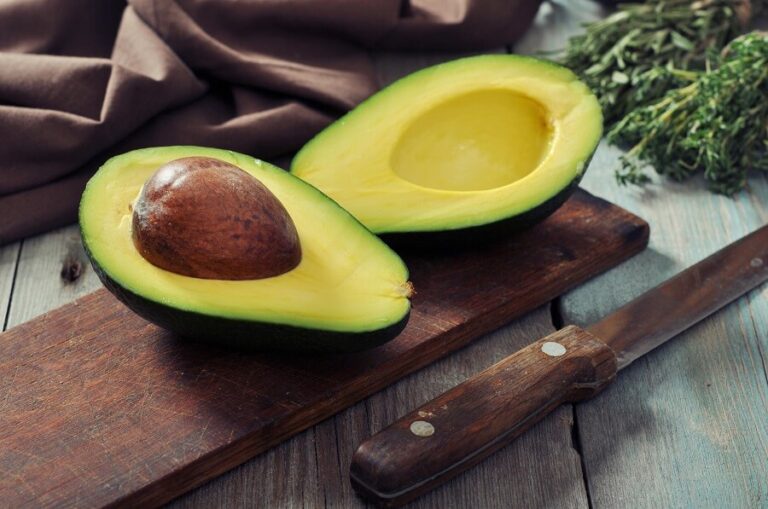For more than two decades, we have been told that saturated fats are bad for your health. They are capable of increasing the levels of bad cholesterol (LDL) and increasing the risks of heart disease.
However, current studies suggest that this is not entirely true. (1,7,8)
This article looks at what saturated fats are and what the evidence today is to say whether they are good or bad for your health.
What are saturated fats?
Saturated fats are a type of dietary fat.
To know what is saturated, you must see how the fat molecules are formed.
Each fat molecule comprises one glycerol molecule and three fatty acids. Glycerol is the same in all fats, but fatty acids are not.
The word saturated refers to the number of double bonds these fatty acids have.
Saturated fats have no double bonds, monounsaturated fats have one double bond, and polyunsaturated fats have two or more.
You can see it more clearly in the following image:
Foods with saturated fat
Foods high in saturated fat are most products derived from animal fat: meats, sausages, and whole dairy products (ordinary butter, heavy cream, milk, ghee butter ).
Saturated fats can also occur in plant foods: coconuts, coconut oil, palm oil , walnuts, and black chocolate.
Foods high in saturated fat tend to be solid at room temperature (like butter), while unsaturated fats (like olive oil ) are liquid.
Examples of foods with saturated fat:
- Common butter
- Ghee butter
- Fatty cheeses
- Milk cream
- Fatty meats
- Sausages, bacon, salami
- Coconut oil
- Palm oil
- Dark chocolate
Are saturated fats bad for your health?
In the 1980s, the nutritional and medical community widely accepted the assumption of a causal relationship between dietary fat intake and heart disease. (2)
The researchers discovered that eating saturated fat appeared to increase cholesterol levels in the bloodstream.
The scientists thought: If saturated fat increases cholesterol and cholesterol causes heart disease, then this must mean that saturated fat causes heart disease.
From this moment on, the dietary guidelines of international organizations were to limit saturated fat as much as possible.
The WHO recommends getting less than 10 percent of your total daily calories from saturated fat. (9) The American Health Association went even further, recommending limiting them to no more than 7 percent of total calories. (10)
However, despite the widespread acceptance that saturated fats are bad for heart health, that idea has begun to evolve.
Current studies state that reducing saturated fats will probably not have any health benefits if they are replaced with simple carbohydrates: sugar, honey, etc. (6)
Eating sugary foods instead of saturated fat lowers “bad” LDL cholesterol, but it also lowers “good” HDL cholesterol and increases triglycerides. The net effect is as bad for your heart as overeating saturated fat.
Another study claims The low-fat fad with recommendations to limit saturated fat to minimal levels has resulted from a poor understanding of the biochemistry of different types of fat and their ultimate impact on the human body. (1)
A meta-analysis of 21 studies said insufficient evidence to conclude that saturated fats increase the risk of heart disease but that replacing saturated fats with other polyunsaturated fats might be more favorable. (eleven)
To elucidate the perennial problem of whether or not saturated fats are bad for heart health, the Harvard School of Public Health convened a panel of nutrition experts and organized a conference. (6)
The general message was that reducing saturated fats can be good for people’s health if they are replaced with polyunsaturated fats.
Eating healthy mono or polyunsaturated fats instead of saturated fats lowers “bad” LDL cholesterol. It improves the ratio of total cholesterol to “good” HDL cholesterol, reducing the risk of heart disease.
So saturated fats may not be as bad for you as previously thought. However, scientific evidence clearly shows that unsaturated fats are still the healthiest type of fat.
Not all saturated fats are bad for heart health.
Not all saturated fat is the same. The type of saturated fat we eat may or may not affect our risk to heart health.
By analyzing data from approximately 75,000 people in the UK and Denmark, it was concluded that: (12)
People who eat long-chain saturated fats (made up of 16 or more carbon atoms) mostly contained in animal fats have a higher risk of a heart attack.
While those that eat short or medium-chain saturated fats generally found in plant products (such as coconut oil) have a lower risk of a heart attack.
Being the smallest vegetable saturated fats, they can travel directly from the intestine to the liver and do not require the bile to break them down. (13)
Therefore it is more correct to say that saturated fats of animal origin are those that can harm our bodies. There is not enough evidence to say that vegetables can increase the risk of heart disease.
Saturated vs trans fat
Trans fatty acids, more commonly called trans fats, are made by heating vegetable oils in hydrogenation.
Trans fats are also found naturally (in small amounts) in meat fat and dairy fat.
Trans fats are the worst type of fat for the health of the heart and the rest of the body. They increase bad cholesterol, lower good cholesterol, create inflammation, and contribute to the precursor of diabetes, insulin resistance.
There is a consensus in the scientific community and reputable health organizations to limit total calories from fat to 2 percent.
They even suggest eliminating them from the diet since just that amount is enough to increase the risk of heart disease by 23%. (6)
If we compare saturated fats with trans fats, there is no doubt that trans fats are worse for health.
Medium-chain saturated fats may be the best option for frying.
As we have made clear above, mono and polyunsaturated fats should be considered the best for health. However, this is as long as they are eaten raw.
Polyunsaturated fats are easily oxidized when heated; when this happens, a part is transformed into trans fats.
Since they do not have double bonds, saturated fats are more stable when exposed to heat.
For this reason, coconut oil is an excellent option for frying or cooking, mainly when cooking methods are at high temperatures.
The health impact of frying in saturated fats vs. frying in mono or polyunsaturated fats is unclear to the scientific community. However, everything indicates that it may be even better for your health to fry in medium chain saturated fats than in vegetable oils such as soy or sunflower.
ABSTRACT
- Saturated fats are fat found in meats, dairy, and some plant-based foods.
- Not all saturated fats are the same; short ones from plant foods (such as coconut oil and chocolate) can be considered healthy.
- Trans fats are worse than saturated fats.
- Saturated fats are not as bad for your health as a few years ago. However, an excess (particularly those of animal origin) can lead to complications in heart health.







